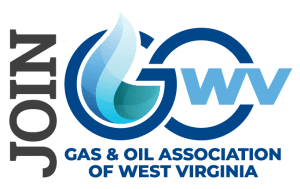Charlie Burd, GO-WV Executive Director
Last week, the U.S. Supreme Court (SCOTUS) ruled in the Sackett v. EPA court case that determines the Waters of the United States (WOTUS) rule will not have jurisdiction over wetlands that are not connected physically to traditional “navigable waters.”
Background:
“Waters of the United States” is a threshold term in the Clean Water Act (CWA) that allows the EPA and U.S. Army Corps of Engineers to define the scope of federal jurisdiction under the CWA. West Virginia Attorney General Patrick Morrisey co-led a coalition of 24 states in fighting against the Environmental Protection Agency (EPA) from implementing a final rule that would expand its jurisdiction under this ambiguous term, considering its ability to be generalized.
The EPA has used this term to implement regulations against landowners and companies from building on protected waterways and wetlands. While landowners and farmers have historically been the targets of this federal overreach, oil and gas developers have found the WOTUS ruling hinders business with these landowners that would provide added revenue for residents. This has led to permitting bottlenecks and general confusion for landowners about what they can and cannot do on their own property.
What Happened:
On May 25, the Supreme Court unanimously rejected the EPA’s definition of WOTUS, stating the EPA’s regulatory expansions were inconsistent with the Clean Water Act text. Justice Samuel Alito noted that the Clean Water Act only applies to wetlands with “continuous surface connection” to “navigable waters like streams, lakes, oceans and rivers that are indisputably covered by the law.
Why it Matters:
This ruling will significantly narrow the scope of the Clean Water Act, allowing landowners to regain control of their property, ending the overregulation of U.S. waterways, and launching opportunities to generate additional revenue from oil and gas royalty agreements. The current use of the Clean Water Act has severely impacted local business owners – like farmers – by inconsistently regulating private property. With water rights varying between each county, landowners are left wondering if the water on their property falls under WOTUS or not – leaving them criminally liable for failing to follow regulations.
What They’re Saying:
- “We and a bipartisan Congress knew the U.S. EPA’s ruling on Waters of the United States (WOTUS) was an act of government overreach, deterring investment in critical energy and infrastructure projects that are essential to maintaining energy security and reliability. GO-WV applauds the unanimous ruling by the Supreme Court and appreciates West Virginia’s public officials for standing up against burdensome, job-killing overregulation that infringed on the rights of private property owners.” – Gas and Oil Association of West Virginia (GO-WV) Executive Director Charlie Burd
- “The EPA’s confused, convoluted and overbroad understanding of wetlands subject to its regulation would have been costly to property owners who would have spent years and tens or even hundreds of thousands of dollars just getting permission from the federal regulators to build on their own property.” – WV Attorney General Patrick Morrisey
- “The Environment Protection Agency continues to fight a losing battle – unnecessary government regulation on private lands and waters,” said Congresswoman Miller. “The Biden Administration should heed this warning from the Supreme Court and withdraw their overbearing WOTUS rule. The American people deserve better than these unworkable rules that freeze infrastructure development, hurt investment in housing, agriculture, and energy, and completely disregard private property rights.” – Congresswoman Carol Miller
- “Today, the Supreme Court sent a loud and clear warning shot to the Biden administration about its attempts to overregulate the lives of millions of Americans. By rejecting the ‘significant nexus’ test, the Court protected America’s farmers, ranchers, builders, and landowners from overreach under the Clean Water Act, and ruled President Biden’s recent WOTUS rule goes too far.” Senator Shelley Moore Capito
- “This sensible ruling preserves protections for our nation’s valuable water resources while providing clarity to farmers and others about the process of determining federal jurisdiction over wetlands.” – National Corn Growers Association (NCGA) President Tom Haag
- “The decision reaffirms the rights of property owners and provides long-needed clarity to rural America. In light of this decision, the Biden Administration should withdraw its flawed final WOTUS rule. It is time to finally put an end to the regulatory whiplash and create a workable rule that promotes clean water while protecting the rights of rural Americans.” – Congressman Glenn Thompson, Chairman of the U.S. House Committee on Agriculture

